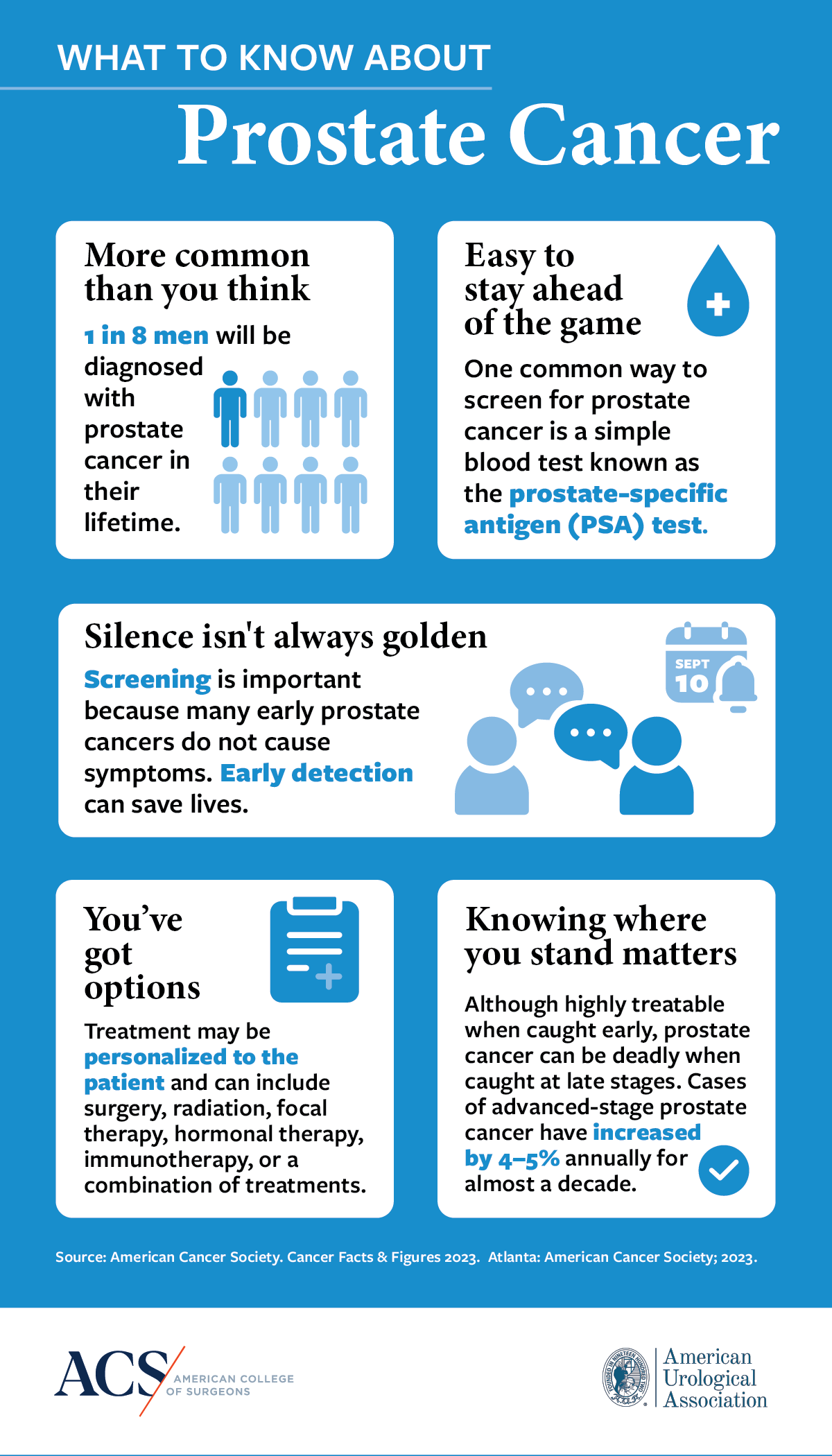Though prostate cancer may not receive as much media attention as breast cancer, it is nearly as common, affecting about 1 in 8 men in their lifetime.
In 2024, about 299,010 men will be newly diagnosed with prostate cancer, more than any type of cancer aside from skin cancer, and about 35,250 men will die from prostate cancer—the most deaths from any cancer in men after lung and bronchus cancer.*
Receiving proper health screenings can be lifesaving. Unfortunately, research shows that men are less likely to visit their primary care doctor than women. A 2022 survey by the Cleveland Clinic revealed that more than half of men surveyed said they do not receive regular health screenings, and 77 percent of men did not know their complete family history regarding urological issues.
The American College of Surgeons (ACS) has partnered with the American Urological Association (AUA) to share vital information about the concerning rise in advanced cases of prostate cancer and how men can protect their health and make the most informed decisions about their healthcare. More information is also available at the Prostate Cancer Information Center of the AUA Urology Care Foundation.
*Data from: American Cancer Society. Cancer Facts & Figures 2024, Atlanta: American Cancer Society; 2024.
Hear from the Experts
A recording of a virtual Newswise press conference, held on September 11, 2023, is available to view online. The press conference includes commentary from ACS Governor James Eastham, MD, FACS, chief of urology service at Memorial Sloan Kettering Cancer Center, Kara Watts, MD, an associate professor of Urology at Montefiore Medical Center, and Kevin Koo, MD, MPH, an associate professor of Urology at Mayo Clinic College of Medicine and Science.
Dr. Eastham, Dr. Watts, and Dr. Koo discussed:
- Rise in advanced cases of prostate cancer and what men can do to protect their health
- Populations most at risk of developing prostate cancer
- When men should start being screened for prostate cancer
- Signs and symptoms of prostate cancer that men should be aware of
- Common misconceptions about prostate cancer screening and treatment
- Advances in how prostate cancer is treated
- Tips for men on how to best advocate for their health





